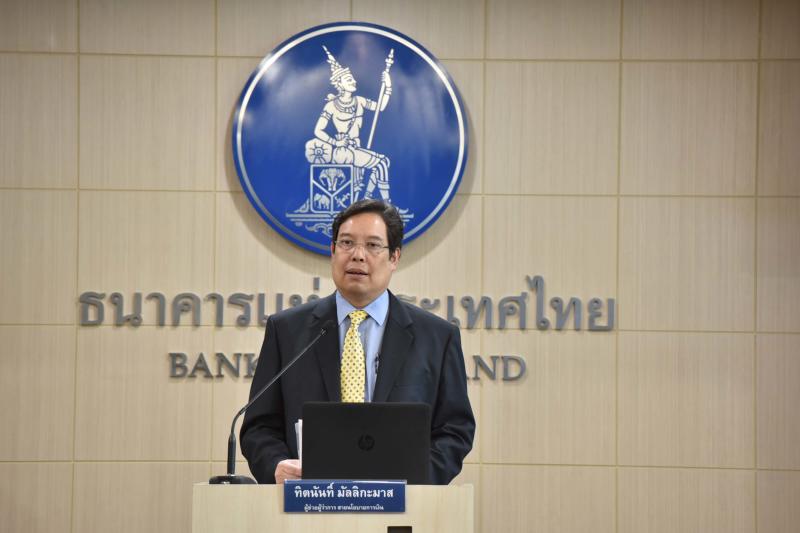
The Bank of Thailand on Wednesday kept its benchmark rate steady after December's tightening, saying an accommodative policy would support the economy in the face of rising global risks.
The Monetary Policy Committee voted 4-2 to hold its one-day repurchase rate at 1.75%, as expected by all 20 economists in a Reuters poll.
The two dissenters favoured a 25 basis-point hike to curb financial stability risks and to build policy space. One member was unable to attend the meeting.
In December, the rate was raised by 25 basis points to the current level from near record lows for the first time in more than seven years, mainly aimed at tempering financial stability risks. The vote was 5-2, with the two dissenters favouring no change to policy.
At 1.75%, the rate is still stimulatory as it is only 50 basis points above the record low seen during the global financial crisis. The economy was expected to continue expanding around its potential despite increased downside risks, the MPC said in a statement.
"The committee viewed that accommodative monetary policy would remain appropriate in the period ahead, and thus would continue to monitor developments of economic growth, inflation, and financial stability, together with associated risks," it said.
The MPC would monitor external risks stemming from both trade protectionism measures between the United States and China and the Chinese economic outlook. The central bank also said it will gauge the impact of major infrastructure investment on private investment and overall economic growth.
Analysts at Capital Economics said in a note that given growth is "set to weaken and inflation likely to remain very low, we are maintaining our view that there will be no further tightening in 2019."
The central bank has forecast Southeast Asia's second-largest economy will expand 4% this year, slowing from 4.2% estimated for 2018 due to softening global demand.
With the Sino-US trade dispute disrupting global factory activity and supply chains, the BoT has also predicted exports to rise at a slower 3.8% rate this year from 7.7% last year.
Policymakers are no doubt also likely to be cautious as Thailand prepares for an election on March 24 -- the first since a 2014 military coup, potentially stoking political uncertainty.
The rising global risks prompted the US Federal Reserve last week to all but abandon further rate increases for this year.
The baht has been Asia's best performing currency this year, which adds to the problems for its key export sector already pressured by the US-Sino trade row.
The BoT said the baht was still moving in line with regional currencies.
Annual headline inflation was only 0.27% in January, staying below the BoT's 1-4% target range for three straight months.
Kobsidthi Silpachai, head of capital markets research of Kasikornbank, noted concerns over financial stability risks could yet see the BoT tighten again.
"It seems that some of the members retain their concerns over risks to financial stability being entrenched," Mr Kobsidthi said.
"Our baseline is that the next hike would be in 2020...but risk to a 2019 move has increased following the persistency of hawkish MPC members."